what we do
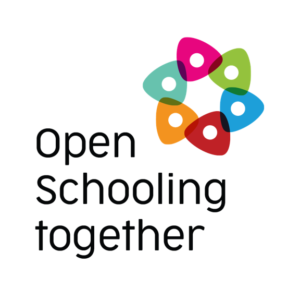
The OStogether network was founded in December 2020 and brings together EU projects on Open Schooling and science education outside the classroom. Ecsite, through its EU projects Schools As Living Labs and Make it Open, approached other EU-funded projects on Open Schooling to create a community of expertise called Open Schooling together (OStogether), building synergies with sister projects and underlining their complementarity within the big picture of Open Schooling. This collective endeavour has included 16 projects.
The OStogether network coordinates a monthly newsletter, a Facebook and Twitter channel and inspiration sessions. The network works together on joint publications and conference presentations.
projects
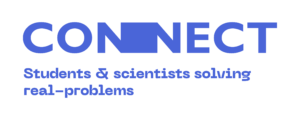
CONNECT
January 2020 – December 2023
CONNECT (Inclusive open schooling through engaging and future-oriented science) supports secondary schools to adopt open schooling, integrating science-action in the core-curriculum and using participatory-science with the community: families, universities, and enterprises. CONNECT will provide useful and interesting add-ons to existing units that tick many curriculum boxes and are easy for teachers.
Resources:
- CONNECT platform
A digital environment where teachers and science professionals can engage with each other on exciting Science Action projects. - Best Practices library
Open access to 60 best practices on STEM education implemented in Spain, UK, Romania, Greece and Brazil. - CONNECT video series on Open Schooling methods
Five videos, each introducing an Open Schooling method. - Open Schooling Declaration (OSD)
Resources, technologies, practices, and policies to accelerate the Open Schooling movement.
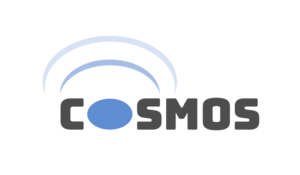
COSMOS
January 2022 – December 2024
In the COSMOS project, partners collaborate with primary and secondary schools that want to engage in science education that is open to the society through co-creation and the implementation of socio-scientific inquiry-based learning.
It aims at leveraging socio-scientific inquiry-based learning (SSIBL) as a pedagogical means for opening up schools to their communities. The project will support the creation of Communities of Practice (CoP) consisting of non-formal and informal education providers, enterprises, families and other stakeholders.

ICSE Science Factory
January 2023 – December 2025
The ICSE Science Factory addresses the urgent need for more scientists and scientifically literate citizens within the EU by creating cross-sectoral networks at local level that work with schools. The resulting new partnerships, e.g. between teachers, students, scientists, and business professionals, immerse learners in real-life problem-solving situations, contributing to a lifelong learning continuum and interest in science.
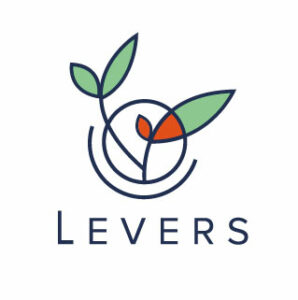
LEVERS
March 2023 – March 2026
LEVERS (Learning Ventures for Climate Justice) develops lifelong learning ecosystems to raise awareness about climate justice, and to co-design educational interventions that support all persons to take meaningful climate action within their communities. Led by diverse and representative locally-organized networks in nine countries, informed by best practices in open schooling, we engage educators, learners, activists, professionals, and policymakers to work together towards a climate-just Europe.
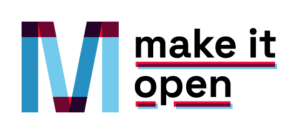
Make it Open
October 2020 – September 2023
The Make it Open project seeks to promote innovative science, technology, engineering, arts, and mathematics (STEAM) learning activities and foster partnerships between schools and local communities. Make it Open is a gateway to Open Schooling where schools are transformed from traditional educational institutions into community partnerships and become agents of community well-being.
Resources:
- The Navigator
A web-based platform to assist teachers and educators in navigating the Open Schooling landscape. - Open Schooling Information Packs
Contain useful information and benefits on Open Schooling, and how to start exploring. - Make it Open Schooling MOOC
Introduces participants to Open Schooling as well as Maker Movement’s ideas and pedagogy.
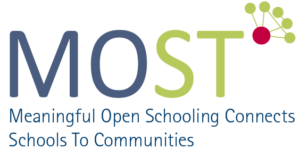
MOST
September 2020 – October 2023
MOST (Meaningful Open Schooling Connects Schools To Communities) intended to support students and citizens in Europe to develop scientific knowledge, transversal skills and competences in working scientifically. The project opened up formal science education to the citizens and established partnerships between schools and their communities to work together on environmental school-community projects.
Resources:
- Pedagogical Guidelines and Exemplary Science materials
Educational basis to run school-community projects and best practices. - Manual to plan and perform school-community projects
Key stages that school-community project leaders should consider when implementing SCP. - Guidelines for MOST fairs and Setting Up of Regional Partnerships
Guide through the planning, implementation and follow-up of a fair. - Communication, Dissemination and Exploitation Plan
Strategies to maximize the impact and visibility of the project, information and results. - MOST Evaluation instruments
Research design and a collection of evaluation instruments (research questions, assessment tools).

MULTIPLIERS
September 2021 – October 2024
The MULTIPLIERS (Multiplayers Partnerships to ensure meaningful engagement with Science and Society) Horizon2020 project seeks to narrow the divide between science and education by offering school students and experts the opportunity to work together on societal and environmental challenges. In so-called Open Science Communities in 6 countries, cooperation unfolds between schools, universities, informal education providers, museums, local associations, industry, civil society, policymakers and media.
Resources:
- Science-learning projects/Toolkits on 6 socio-scientific issues
Contains a set of teaching and learning activities (topics: vaccination, antimicrobial resistance, air pollution, biodiversity, forest use vs. forest protection, clean water, sanitation). - MULTIPLIERS White Book
Recommendations and good practices to improve actual educational practices and policies in open-schooling. - Open Science Communities (OSCs) Network
International Open Schooling network.
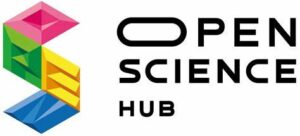
OSHub
October 2019 – September 2022
The Open Science Hub Network supports schools and local stakeholders to use research and innovation as a tool for tackling local challenges and contributing to sustainable community development. OSHub envdeavours to set up a European network of community hubs in communities that traditionally do not engage with research and innovation due to various barriers. Among its outcomes, the development and sustaining of local networks and strategies for schools and community stakeholders to exchange their knowledge and experiences, and to collaborate together.

OTTER
September 2021 – February 2024
OTTER is an EU-funded project focused on increasing the interest in scientific topics among young people through Education Outside the Classroom (EOC) methods and pedagogies.
Resources:
- EOC Learning Platform
Material and guidelines for Education Outside the Classroom educators. A set of tools, guidelines and material for educators and teachers wanting to implement Education Outside the Classroom activities. - The OTTER Hub
Connect with people passionate about Education Outside the Classroom to share news and ideas to develop new pedagogies and methodologies. - A map of EOC places for practice
A shared map of places, programmes and initiatives for STEM learning beyond traditional classroom settings! - Recommendations for accrediting EOC practices
Available by Februay 2024
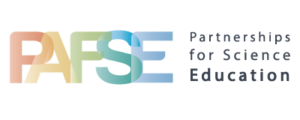
PAFSE
PAFSE is a science education project that addresses the challenges of public health. The project engages different providers in building science clusters that boost young people’s awareness of public health challenges, protective factors and patterns of risky behavior. Its goal is to create regional health education clusters of schools supported by stakeholders to promote innovative open ways of providing STEM learning for addressing public health issues. PAFSE will strengthen populations’ literacy and mitigate risks, having students playing a central role, as public health ambassadors, early adopters and spreaders of scientific knowledge.
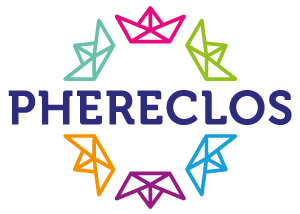
PHERECLOS
October 2019 – September 2022
The EU-project PHERECLOS (Partnerships For Pathways To Higher Education And Science Engagement In Regional Clusters Of Open Schooling) builds upon the experience of Children’s Universities (CUs) in Europe and beyond. Due to their engagement with children and young people, they help to breakdown institutional boundaries between universities and the wider society. The project established “Local Education Clusters” (LECs), bringing together schools and further relevant actors in the educational ecosystem of 6 diverse pilot regions.
Resources:
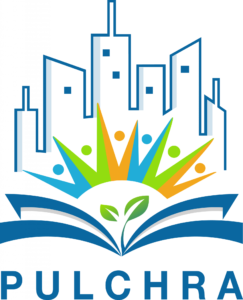
PULCHRA
September 2019 – December 2022
PULCHRA explored the open schooling concept through the theme “Cities as urban ecosystems” and created new partnerships in local communities to foster science education for all citizens. The project brought trust in the method of science and in evidence based decision making. It helped build recognition of the links between the natural, built and socio-economic environment. The project developed open source educational e-material, e-guidelines and smartphone apps for analyzing the urban ecosystem and challenges.
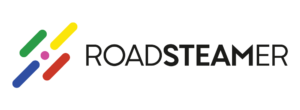
Road-STEAMer
September 2022 – August 2025
The Road-STEAMer project will develop a STEAM Roadmap for Science Education in Horizon Europe and in educational policy across the continent, to get a shared understanding of Europe’s particular educational needs and how STEAM can address them, to explore the opportunities arising through STEAM for integrated science learning approaches and synergies, and to study those policy deficiencies that impactful adoption of STEAM approaches in Europe’s science education landscape.
Resources:
- The Road-STEAMer CoP Suite
Web-based open-source set of tools to support online interaction/collaboration. - Research Framework
The determination of the criteria to analyze STEAM practices.

SALL
September 2020 – August 2023
The Schools As Living Labs (SALL) project introduces an innovative approach to science education by fostering collaboration between schools, communities, and local actors through open-innovation methodologies. It aims to modernise STEM education, transforming schools into living labs. SALL involves co-creation, experimentation, and engagement to bridge education and real-world needs, enhancing 21st-century skills and science awareness.
Resources:
- The Schools as Living Labs Community Platform
A place to find, share and interact with school-based living lab activities and communities. - The Toolbox
Explore the SALL project’s outcomes through visually engaging summaries. - Portfolio of Schools as Living Labs Projects
A collection of 22 Living Labs exemplary cases of primary, secondary and high schools across Europe.
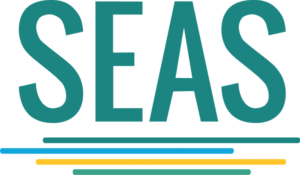
SEAS
September 2019 – August 2022
SEAS identified core principles and best practices required for creating and sustaining open schooling collaborations, and promoted scientific literacies and skills necessary to engage in addressing real-life, complex sustainability challenges. The aim of the project was to develop tools and methods that facilitate collaboration between schools and local communities facing sustainability challenges. Throughout the three years of implementation, the SEAS project has generated a wealth of knowledge resources and tools that draw from the experiences and systematic analyses of open schooling collaborations across six European countries.

SLEs
January 2023 – December 2025
STE(A)M Learning Ecologies (SLEs) project funded under Horizon Europe fosters inclusive science learning across formal and informal environments. It emphasises collaboration among formal, non-formal, informal education, enterprises, and civil society, empowering all stakeholders to initiate and lead, promoting open schooling-enabled science learning paths for diverse learners.
contact us
Want to join the OStogether network or learn more?
Email Greta Alliaj (Ecsite), galliaj@ecsite.eu

 ← follow OStogether on social media!
← follow OStogether on social media!